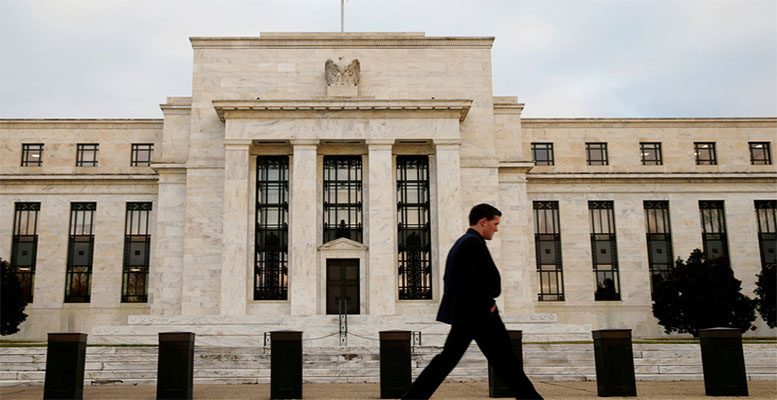Pablo Pardo (Washington) | To the increase in Fed interest rates has been the reduction of its balance sheet, at good rhythm: 50 billion dollars a month. To the point where the markets and the US economy have begun to show the effects.
“Never bet against the Fed”, is one of the few market sayings which tends to be complied with systematically. But not always. In one sense, the announcement by the US central bank chairman, Jay Powell, that “we are listening carefully to the signals the market is sending” was a demonstration that, at least this time, the market has imposed itself on the Fed. It was also an unexpected Epiphany present, which could have implications for the whole global economy in 2019.
When Powell made these comments, Wall Street was close to a bear market, which is produced when the indices fall a minimum of 20% in comparison to their highs. The yield curve was practically flat, and about to invert, which seemed to indicate that operators did not believe that the Federal Reserve was about to carry out the three interest rises that its famous “line of points” anticipated after its December meeting. In other words: both fixed income and variable incomes foresaw a slowing in the growth of both GDP and company profits, while the Federal Reserve continued to expect in 2019 an unchanging macroeconomic panorama.
Confrontations
Thus it could be said that the market bet against the Fed and won when Powell made his announcement. It is true that we are talking about the politically weakest central bank chairman in four decades. And about a President, Donald Trump, who has not hesitated to attack him in Twitter, in what constitutes a spectacular violation of what is supposed to be the independence of the central bank.
But it is not just Trump. In an unprecedented action, US Treasury Secretary Steven Mnuchin has asked the major banks in the country how they would prefer the tightening of monetary policy: through the tightening of interest rates or through a reduction of the Fed balance sheet (in other words, selling the bonds acquired during successive rounds of quantitative easing). Both means are already being applied, and, although only the former is attracting the attention of the media, the reduction of the Federal Reserve’s assets portfolio (selling 50 billion $ a month) is having a considerable impact, draining liquidity from the US economy. The interference by the Treasury in US monetary policy, albeit disguised as technical discussions, is another blow to the independence of the central bank.
But it appears that it has not been either Trump or Mnuchin which have made the US central bank change its point of view, nor the market. What has, apparently, had the greatest impact has been, fundamentally, the evolution of the US economy. An evolution that can be summed up in one word: uncertainty.
What moves the Fed
The imbalances in the world´s leading power have not remained the same since Trump’ s arrival; rather they have increased. Some of these indicators have more of a political value than anything else. This, for example, is the case with the trade deficit, with which the President has threatened to declare a trade war of the rest of planet Earth, which has got worse while Trump has been in the White House.
However, these figures do not move the Fed. What makes the US central bank decide its monetary policy are prices and growth. The former remain stagnant, despite full employment in the country. And growth seems to be slowing, in good part because, with his trade war, Trump has accelerated the slowdown in China, and now the world´s second economy is buying fewer goods and services from the US. And from the rest of the world in general. Not only Apple has declared that its profits are going to be reduced by China´s slowdown. Also, for example, its main rival outside China, Samsung.
Interconnected Powers
In fact, the interdependence between China and the US is such that the Fed itself knows that it cannot carry out a monetary policy completely independent of the world´s second largest economy. Powell made this clear when he justified the pessimism of the market by “the concerns about global growth and trade negotiations, which are related to this”.





